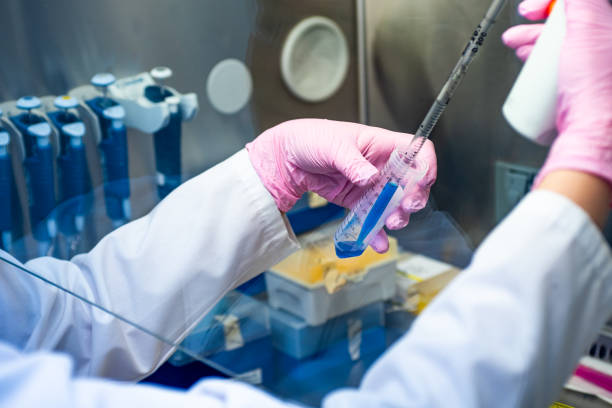Introduction
In the quest for overall well-being, understanding the importance of bone marrow transplantation is crucial. This groundbreaking procedure has the potential to save countless lives and improve the quality of life for those suffering from certain diseases. Bone transplants in India is rapidly advancing healthcare industry, has become a sought-after destination for individuals seeking bone marrow transplants. For bone transplants in India, Health Nirvaana stands out as a leading provider of specialized care and has remarkable success rates.
What is a Bone Marrow Transplant?
A bone marrow transplant is also known as hematopoietic stem cell transplantation. It is a medical procedure that involves replacing damaged or destroyed bone marrow with healthy stem cells. The bone marrow, spongy tissue inside our bones, produces vital blood cells. By transplanting healthy stem cells, medical professionals aim to restart the production of these essential blood cells.
Types of Bone Marrow Transplant Procedures
There are two primary types of bone marrow transplant procedures:
Autologous Transplants
An autologous transplant involves using the patient’s own stem cells. In this procedure, we first harvest the stem cell, then process it, and later reintroduce it into the patient’s body. This procedure is commonly utilized in cases where the patient’s bone marrow is healthy, but other treatments such as chemotherapy or radiation are necessary.
Benefits of autologous transplants include a reduced risk of complications such as graft-versus-host disease (GVHD) and a relatively shorter recovery period. However, limitations of this procedure include the potential reintroduction of cancer cells if the patient’s bone marrow was affected by cancer.
Allogeneic Transplants
Allogeneic transplants involve using stem cells obtained from a healthy donor, typically a sibling or a matched unrelated individual. The donor’s stem cells are used to replace the patient’s damaged bone marrow. This procedure is commonly performed when the patient’s bone marrow is diseased or unable to produce healthy blood cells.
Allogeneic transplants offer the potential for complete and long-term recovery. However, they come with the risk of GVHD and require a close matching process to ensure compatibility between the donor and the recipient.
Preparing for a Bone Marrow Transplant
Before a bone marrow transplant can take place, several factors need to be considered to ensure the patient’s eligibility and readiness for the procedure.

Evaluating Patient Eligibility
Healthcare professionals carefully evaluate the patient’s overall health, the severity of the underlying disease, and the individual’s ability to withstand the demands of the transplant process. Age, pre-existing medical conditions, and the absence of active infections are essential factors to consider when determining patient eligibility.
Pre-Transplant Tests and Requirements
Before proceeding with a bone marrow transplant, a series of tests and evaluations are conducted to determine the patient’s suitability for the procedure. Blood tests, imaging scans, and consultations with various specialists will help create a comprehensive picture of the patient’s health status.
Finding a Suitable Donor
Finding a suitable donor is crucial for the success of an allogeneic transplant. Donor options include related donors (such as siblings), unrelated donors (identified through national and international registries), and haploidentical donors (where a partially matched relative can serve as a donor).
The matching process is complex, involving testing the compatibility of human leukocyte antigens (HLA), which are protein markers found on cells. HLA matching plays a significant role in determining the likelihood of a successful transplant and minimizing complications.
Preparing the Patient
In preparation for a bone marrow transplant, patients may receive pre-transplant treatments such as chemotherapy or radiation. These treatments help eradicate diseased cells and create space for the new stem cells to thrive. Additionally, patients undergo conditioning regimens to weaken their immune systems, allowing for the acceptance of the transplanted cells.
This procedure involves a lot of physical and emotional challenges and we make sure that we prepare the patient emotionally for the transplant. We encourage the patients and their support networks to participate in counseling and educational programs to minimize stress and enhance their overall well-being.
The Bone Marrow Transplant Process

A bone marrow transplant typically involves several phases, each with its own unique considerations and expectations. Understanding these phases can help patients feel more informed and prepared.
Harvesting and Processing Bone Marrow
To harvest bone marrow we can either perform a surgical procedure or a process called Apheresis, where peripheral blood stem cells are collected. Once harvested, we send the bone marrow to the laboratory for processing, which involves separating stem cells from other components.
Transplantation and Engraftment
To administer the processed bone marrow to the patient’s body, doctors perform intravenous infusion. This processed bone marrow is either the patient’s own stem cells or obtained from the donor. After transplantation, we do close monitoring to track the fragmentation of the new stem cells and ensure their successful integration into the recipient’s body.
Post-Transplant Care and Recovery
Recovery after a bone marrow transplant is a critical phase that requires vigilant care and management of potential complications and side effects.
Managing Complications and Side Effects
One of the primary concerns post-transplant is the development of graft-versus-host disease (GVHD). This condition occurs when the transplanted cells recognize the recipient’s body as foreign and attack healthy tissues. GVHD can affect various organs, and its severity varies from case to case. Treatment options for GVHD include medications that suppress the immune system and alleviate symptoms.
In addition to GVHD, patients need to follow a strict medication regimen to prevent infections and complications. Post-transplant care also involves regular follow-up appointments, monitoring blood counts, and addressing any emerging issues promptly.
Medications and Immunizations
Post-transplant, doctors prescribe patients with immunosuppressant medications to prevent rejection of the transplanted cells and reduce the risk of GVHD. These medications require strict adherence and may result in side effects that need monitoring and management.
Immunizations are a vital aspect of post-transplant care. Specific vaccines can help protect against infections that might be more severe in individuals with compromised immune systems. It is essential to consult with healthcare professionals regarding the timing and suitability of specific vaccinations.
Bone Marrow Transplant in India: Health Nirvaana’s Expertise
Health Nirvaana is at the forefront of bone marrow transplant services in India, providing unparalleled expertise and outstanding support for patients seeking this life-changing procedure.
Expert Team of Specialists
Health Nirvaana boasts a team of highly skilled and experienced medical professionals specializing in bone marrow transplants. These experts work collaboratively, ensuring a comprehensive and personalized approach to patient care. The team’s collective knowledge and expertise contribute to the high success rates achieved by Health Nirvaana.
State-of-the-Art Infrastructure
At Health Nirvaana, we provide cutting-edge infrastructure and advanced medical technologies to offer state-of-the-art bone marrow transplant services. Hence, we commit to creating a conducive environment for the patient’s recovery, enhancing their overall experience.
Success Stories and Patient Testimonials
Health Nirvaana has numerous success stories of bone marrow transplants that have resulted in remarkable recoveries and restored hope in patients’ lives. These success stories reflect the institution’s dedication to providing exceptional care and innovative treatment approaches.
Moreover, testimonials from satisfied patients further emphasize the compassionate and professional care provided by Health Nirvaana. These testimonies serve as a testament to the positive experiences and outcomes achieved by patients who have undergone bone marrow transplants with the institution.
Summary
Embarking on a journey to wellness through a bone marrow transplant is an arduous but potentially life-saving path. We don’t need to overstate the importance of bone marrow transplants, as we know that they offer a chance at renewed health and vitality to those battling certain diseases. Health Nirvaana’s expertise and commitment to excellence in bone marrow transplant services make it a top choice for individuals seeking treatment in India.
Conclusion
Embarking on a journey of bone marrow transplant in India is a significant decision. It requires careful consideration and support from an expert medical team. Health Nirvaana’s reputation, expertise, and state-of-the-art facilities make it an ideal destination for individuals seeking this life-changing procedure. By choosing Health Nirvaana, patients can embark on a journey to wellness. We offer compassionate care and groundbreaking medical treatments to offer hope, healing, and a chance at a better life.


Leave a Reply